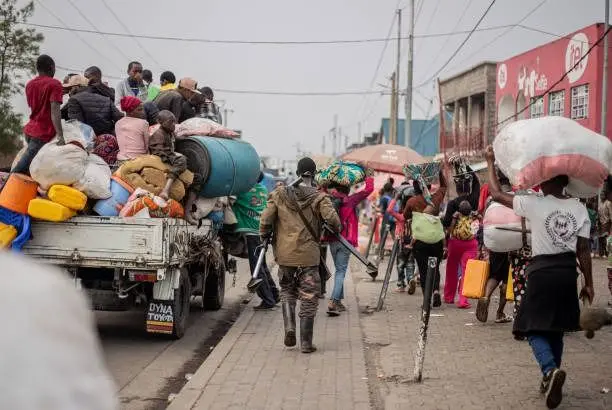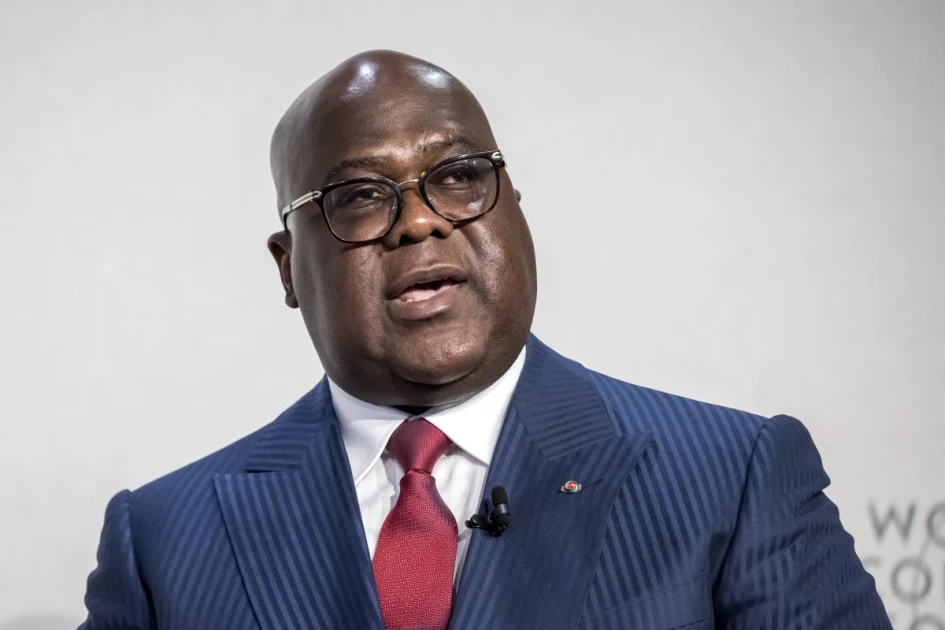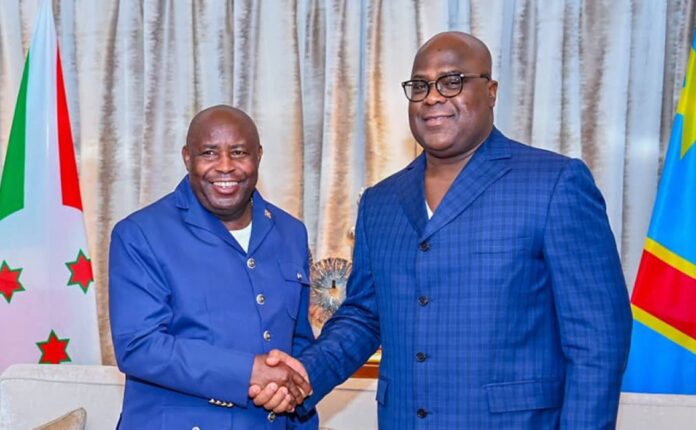Wazalendo fighters operating in eastern Democratic Republic of Congo (DRC), with backing from the national army, have been accused of widespread human rights abuses against civilians in recent months, according to a new report by Human Rights Watch (HRW).
The report documents alarming incidents in the North Kivu and South Kivu provinces, where Wazalendo combatants armed groups recently united to fight the M23 movement have beaten, extorted, and killed civilians. Some of the abuses were allegedly committed based on ethnic identity.
The term Wazalendo, Swahili for “patriots,” refers to former members of various armed groups who have banded together to support the Congolese Armed Forces (FARDC) in their battle against the M23 movement , a group widely believed to be supported by Rwanda.
While the Congolese government has positioned the Wazalendo as allies in securing national sovereignty, HRW warns that their actions on the ground suggest a breakdown in oversight. “The Congolese army may be complicit in supporting Wazalendo abuses,” said Clementine de Montjoie, HRW’s senior researcher for Africa.
She urged the government to immediately cease its support, disarm the group, and launch impartial investigations to ensure accountability.
The report highlights multiple incidents where Wazalendo fighters set up illegal roadblocks, demanding money from civilians and subjecting them to beatings. In March and April, for instance, HRW says fighters extorted sums of 500 to 1,000 Congolese francs at key road junctions in South Kivu.
Local officials have voiced frustration. On April 23, Jean-Jacques Elakano, acting governor of South Kivu, told reporters that tax collection had become nearly impossible due to Wazalendo’s control, saying they “should not replace the state.”
In one documented case from March, a 48-year-old man in Sange was reportedly beaten to death by a Wazalendo commander over accusations of theft. The commander, who was also involved in the killing of a government soldier, was removed from his post but never prosecuted.
HRW’s findings also reveal targeted violence against the Banyamulenge, a Tutsi minority in South Kivu. On February 14, Wazalendo fighters allegedly shot and killed a 25-year-old Banyamulenge man in Mulolongwe, accusing him of being Rwandan. He was shot twice in the legs and died from his injuries, according to eyewitnesses.
Following the capture of Bukavu by M23, Wazalendo fighters reportedly raided more than 20 Banyamulenge homes, looting property and intimidating residents. One community leader told HRW, “Since M23 took Bukavu, things have gotten worse. If you say you’re Banyamulenge, Wazalendo claim we don’t even exist.”
Despite these allegations, HRW says the Congolese army continues to supply the Wazalendo with weapons and logistical support. The organization warns that government officials who arm known abusive groups could be held accountable under international law.
Estimates suggest there may be as many as 20,000 Wazalendo fighters, although the exact number remains unclear. The coalition of militias, some of which were once rivals divided along ethnic lines, united in late 2021 to counter the resurgence of M23.
HRW also raises concerns over FARDC’s alleged support of the FDLR, a rebel group composed of Rwandan nationals linked to the 1994 genocide. This, according to Rwanda, justifies its own security interventions in eastern Congo. The Congolese government, however, accuses Rwanda of fueling conflict through its support of M23.
As regional peace talks continue, HRW is urging President Félix Tshisekedi’s administration to halt support for abusive militias, prevent ethnic-based violence, and prosecute those responsible for crimes.
The organization also calls for a thorough vetting process for military recruits, a national disarmament and reintegration program, and the inclusion of these measures in broader peace negotiations.
“Supporting the Wazalendo has deadly consequences,” said HRW’s de Montjoie. “The Congolese government must prioritize the protection of its civilians and ensure justice for victims of abuse. Only then can the cycle of violence in eastern Congo begin to end.”



